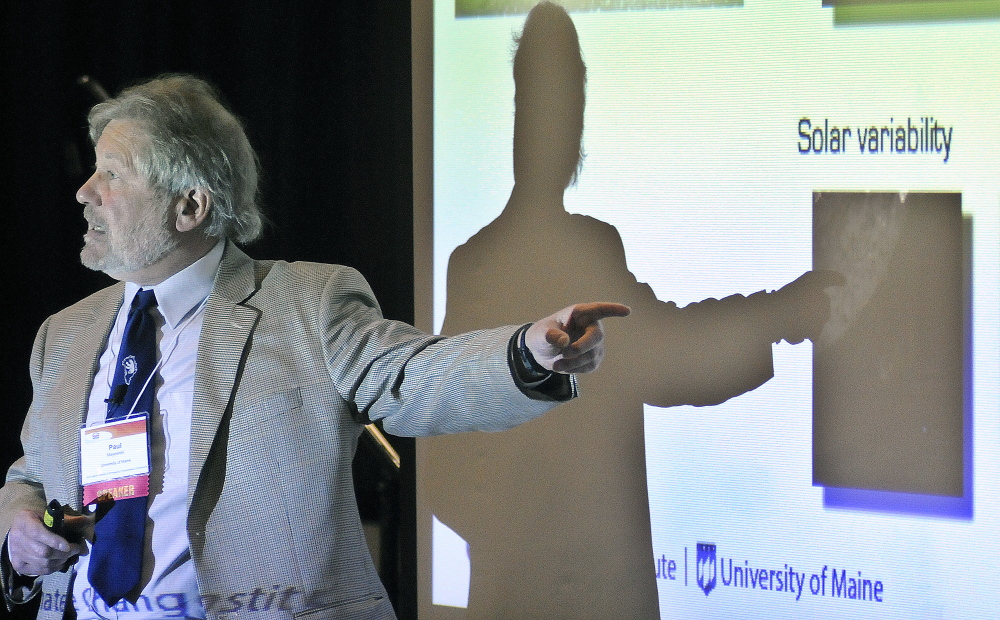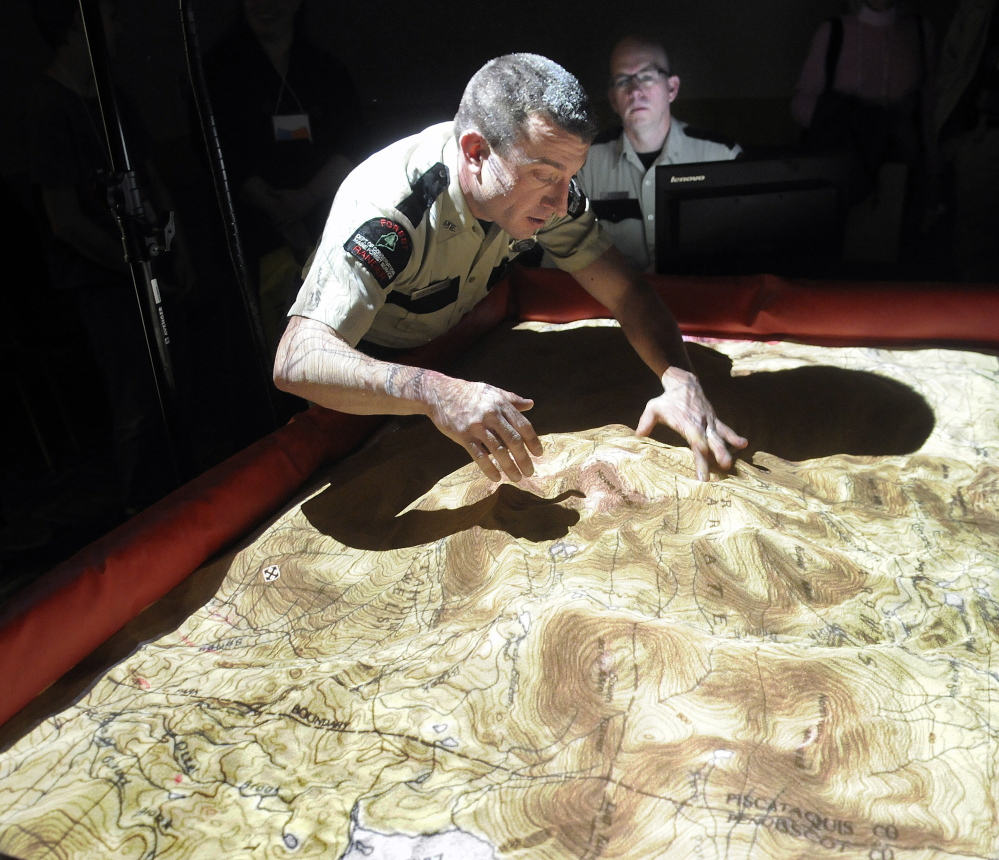AUGUSTA — Expected increases in temperature, sea level and rainfall caused by climate change mean local communities need to be better prepared for different types of emergencies, the director of the University of Maine’s Climate Institute said Tuesday.
The research institute is developing a framework to help communities, the state and others plan for the effects of climate change, Paul Andrew Mayewski, director and professor at UMaine’s Climate Institute, told attendees at an emergency management conference focused on the climate.
Emphasizing that there are real effects now is important for spreading awareness, Mayewski told conference attendees in his keynote address. People will care about and pay attention to climate change only if they see it’s affecting them now and not hear about what might happen in a century, he said.
“They need to understand that their health and their wealth is directly related to things that are happening as a result of climate change today and that humans play a dramatic role,” he said.
Community leaders should understand how quickly the climate can change and what vulnerabilities exist in their communities, he said. The goal of the framework being developed is to give people the tools to look at different plausible scenarios for how the climate will change in the future, including expected increases in temperature, sea level and rainfall, he said.
The institute already has three online resources for looking at the actual and expected effects of climate changes in specific locations.
Hundreds of people were expected to attend the two-day conference Tuesday and Wednesday at the Augusta Civic Center, sponsored by the Maine Emergency Management Agency, the State Emergency Response Commission and the Maine Association of Local Emergency Managers. Around 40 workshops and demonstrations were scheduled, covering topics including communities, health care, businesses and emergency management.
In Mayewski’s presentation, he outlined how the Earth’s climate has changed over hundreds of thousands of years and what is projected to happen in the future. He emphasized that although models typically work well to show trends, different factors can affect the speed and severity of the changes.
Earlier this year, the Climate Institute updated its 2009 report highlighting the effects of climate change on the state.
Warming temperature, which increased 3 degrees in Maine between 1895 and 2014 and is expected to increase another 3 to 5 degrees by 2050, is linked to an increase in incidence of Lyme disease and could more than triple the number of extremely hot days in some places, the report said.
However, warming global temperatures also could provide economic opportunities for Maine because the melting of Arctic sea ice could open up new shipping channels, Mayewski said. The state’s ports could serve as the gateway to Europe and the east, he said.
Expected increases in rainfall and decreases in snowfall in Maine could harm winter recreation industries, including ski resorts and snowmobiling, the report said. An increase in storms with extreme amounts of precipitation also has forced towns and cities to make costly repairs to infrastructure. The Northeast states saw more than a 70 percent increase in the amount of precipitation falling in very heavy storms between 1958 and 2010, “taxing an already stressed and aging infrastructure,” the report said.
Mayewski’s goal is to develop a more comprehensive framework in the next three to five years for evaluating plausible scenarios of climate change at the local and state levels. Right now, people can use the institute’s three online tools to look at the effect of climate change on their locations, he said. One of them, called Climate Reanalyzer, maps visualizations of weather and climate data and models, showing how the climate has changed and how it’s predicted to change in the future. Another, 10Green, lets people compare the environmental health of different towns and cities, including the levels of carbon monoxide and airborne particles.
Mayewski said the institute also plans to find two or three case examples in the state of communities affected by climate change, hopefully to encourage other communities to look at their own vulnerabilities.
If you don’t show people climate change is having an affect now, he said, “you’ll never get their attention.”
Paul Koenig — 621-5663
Twitter: @pdkoenig
Send questions/comments to the editors.




Comments are no longer available on this story